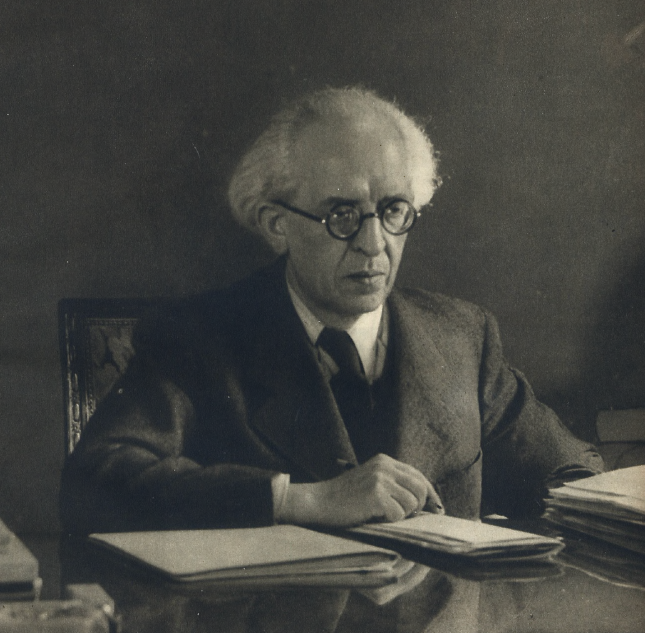On 20 August 1946, Vojtech (Béla) Tuk, former Slovak prime minister, war criminal, and organiser of the repression of Slovak Jews, was sentenced by the Bratislava People's Court to death by hanging.
Vojtech (Béla) Tuka, an ethnic Hungarian, was born in Slovakia in the village of Štiavnicko Bané. He studied law at universities in Berlin, Budapest, and Paris before returning to Slovakia, where he became the youngest professor in the country's history, first at the University of Pécs and then in Bratislava.
Since his youth, he had held extreme right-wing views. He founded the nationalist paramilitary organisation Rodobrana in 1923, whose members wore black shirts and swore personal loyalty to him. He became one of the closest associates of the nationalist Jozef Tiso, and established contacts with the NSDAP. He was sentenced to 15 years in prison by the Czechoslovak authorities in 1929, but was pardoned by President Beneš in 1937 and released. A year later he became secretary-general of the Slovak People's Party named after Andreja Hlinka, a clerical nationalist. In 1938, he started to form paramilitary units called Hlinka Guards on Slovak territory.
After the proclamation of Slovakia's independence, he first became deputy prime minister and in 1939 PM and signed the “Treaty on the protective relationship between Germany and the Slovak State”. He met Hitler and Joachim von Ribbentrop in person. He was one of the initiators of Constitutional Law 210, which obliged the government to "expel Jews from the social and political life of Slovakia". He was personally responsible for deporting over 70,000 Slovak Jews to Nazi concentration camps. In 1944, he ceded the post of prime minister to Jozef Tiso for health reasons.
In April 1945, he fled Slovakia, but was caught and handed over to the Czechoslovak authorities. On 20 August 1946, he was hanged in the Bratislava Prison.
Source:
Leni Yahil, “The Holocaust: The Fate of European Jewry, 1932-1945” (Studies in Jewish History), Translated from the Hebrew by Ina Friedman and Haya Galai, Oxford University Press, USA, 1991
























